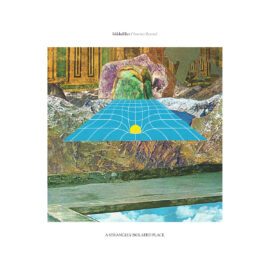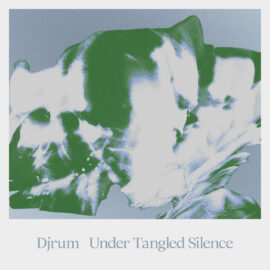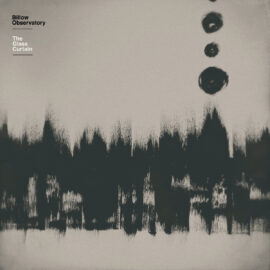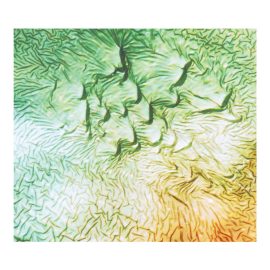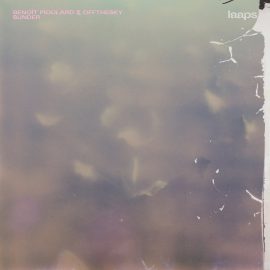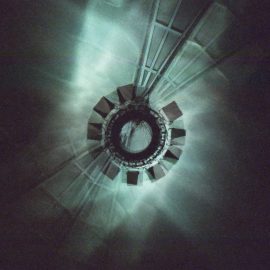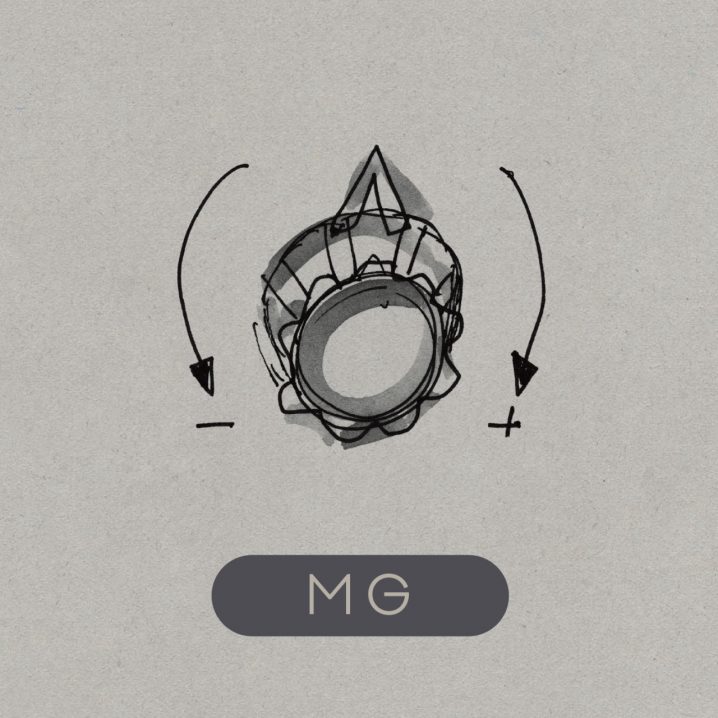 Martin Gore MG Mute Martin Gore is not an artist who lacks any ability or outlet to express himself. He’s been working as the primary songwriter (and, prior to 2000 or so, the sole writer) and lyricist for Depeche Mode since Vince Clarke’s departure after their 1980 debut, and he recently collaborated with Clarke for the first time in as much time had passed since then with their VCMG minimal techno release a couple years ago. He’s also released more than one collection of covers, but MG is his first solo album of original material. I approached MG with great curiosity, being a longtime DM fan and also enjoying VCMG plenty. MG is different from his work in Depeche Mode, if only by virtue of being entirely instrumental. So in this sense it shares more in common with his VCMG output, all instrumental and heavy on synthesis experiments and sound design. However, it ends there, with most of MG keen on exploring territory distant from the dancefloor. There’s also something retro-nostalgic about it, feeling like it could score a 70s space odyssey with its sometimes unadorned synth sounds and sense of space. Such is the case with “Elk,” an elegant and brightly scored moment that stands apart in its prettiness, but it also applies to “Creeper,” a darker but no less spacious track, something that would probably feel right at home over footage from Solaris or 2001 (but maybe with a healthy dose of vintage John Carpenter). There are more rhythmic tracks, like the languid groove of “Stealth” or the straight-up techno-EDM hybrid of “Crowly,” but by and large this is Gore’s seized opportunity to let his creations take him where they will. It’s refreshing to hear him unburdened by the need to write songs, able to explore other territory and indulge his own singular instincts, although fans of his primary project will likely not find much of what they love about Depeche Mode here. It’s best appreciated as its own type of animal, with tracks like “Hum” or “Southerly” which can really soar when unencumbered by expectations. It’s not the most groundbreaking thing I’ve heard, but considering his storied career and massive repertoire as a songwriter, it’s nice to hear Martin Gore reaching beyond the DM brand to pursue something on his own terms.
|
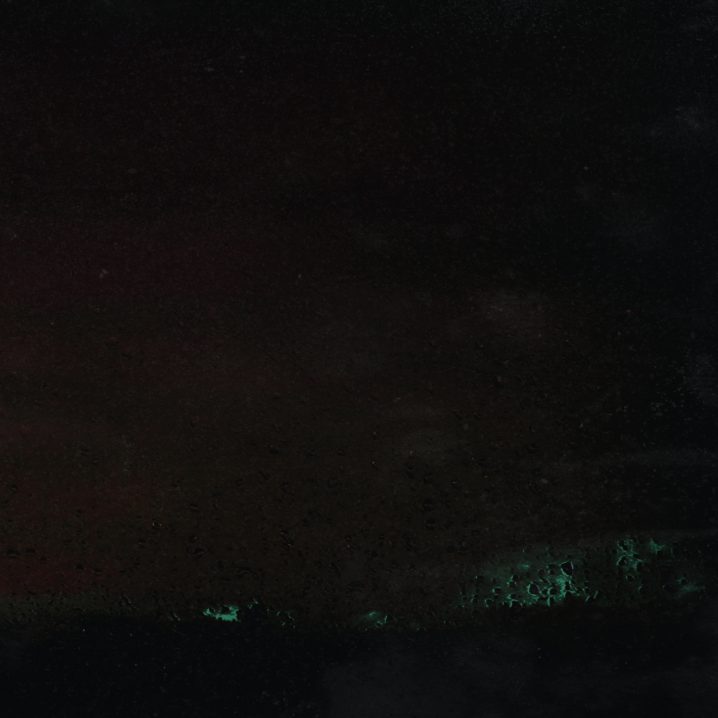 Ekca Liena Graduals ConSouling Sounds Daniel MacKenzie’s Graduals is a fairly sharp contrast to the only other album I’ve heard of his (his collaboration with Spheruleus, Mapping the Boundary Layer, released in 2012 on Home Normal). “Out Fir” begins with a faint murmur of undulating sound, gradually brewing into a mysterious blend of vibes, drones, and atmosphere before layering additionally abrasive sounds that tremble within the mix. It feels as though there is a push and pull between the more sublime atmospheres and the more immediate, grittier textures that struggle to co-exist on some of these pieces, and it’s that feeling of tension that propels it forward and keeps me so engaged. These tracks flow into one another as movements of a whole rather than discrete pieces, so it’s best to experience Graduals as one expansive journey, if possible. In contrast to the shrill squiggles that characterize the final moments of “Out Fir,” “Mattie Devore” boasts more obvious musicality, sharing some of the hazy gravitas of his contemporary Tim Hecker. I suppose it comes down to a feeling of dread rather than doom, a distinction worth making when considering Graduals relative to some of the more sinister dark ambient sounds out there. But it’s not all so dark; it lives up to its title with varying tonal shades, with closing piece “Ky Ra” sounding substantially different from the splashy grind of “Free Precipitation.” And yet they all feel like they belong together, part of a linear arc that is full of surprises. “Free Precipitation” evolves into a full-on psych jam, “Mattie Devore” brings the drama with bellowing organ and drones, or “Fields Forever”’s disorienting, backwards introspection. The album is intended as a deliberate sequel of sorts to MacKenzie’s debut album, Slow Music for Rapid Eye Movement. Truthfully, I haven’t heard it, and so I am approaching Graduals entirely on its own merits — but it’s surely an impressive body of work. Compared to his collaborations with Spheruleus, these tracks are richer, more immersive, more emotive. They evoke a much more intense intimacy, with its crests and valleys complementing one another to good effect as one long journey. Highly recommended.
|
|
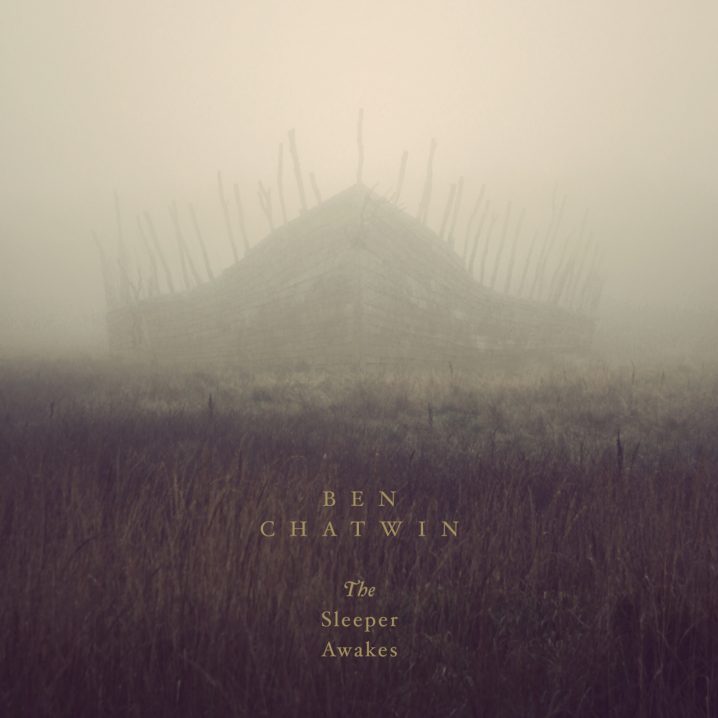 Ben Chatwin The Sleeper Awakes Village Green Ben Chatwin previously released music under the alias Talvihorros, but for his latest he’s opted to go by his proper name for what feels like a personal and intimate album of instrumentals. Chatwin claims a keen interest in the marriage of traditional instruments and contemporary electronics and synthesis, and The Sleeper Awakes explores this thoroughly through a series of gorgeous pieces. The opener, “Sirius,” exudes the most perfect melancholy, with a gorgeously lonely guitar in the fore. It’s such a perfect opener that I couldn’t help but fall in love with the rest. Most of the proceedings focus on elegant arrangements of melodic chimes and subtle electronics, with ambient layers of decaying guitar and pads. But that comes to a glorious climax with “Darwinism,” characterized most notably by a gorgeous, cloying string sweep that undulates throughout like a persistent tide. Chatwin often indulges in some of the same repetition and pattern-weaving of post-rock heavyweights like Godspeed You! Black Emperor or Mogwai, and it’s just as effective for him here. Chatwin is skilled at crafting a mood that continually evolves and shifts focus across the album’s ten pieces, with some more tense moments such as the distorted edge of “Shadow Cutting” or the rolling crescendo of closing piece “Insomnia.” From start to finish, though, Chatwin’s talent for achingly beautiful arrangements shines through. It’s easily the best album of its kind I’ve heard in years — my favorite of the year so far.
|
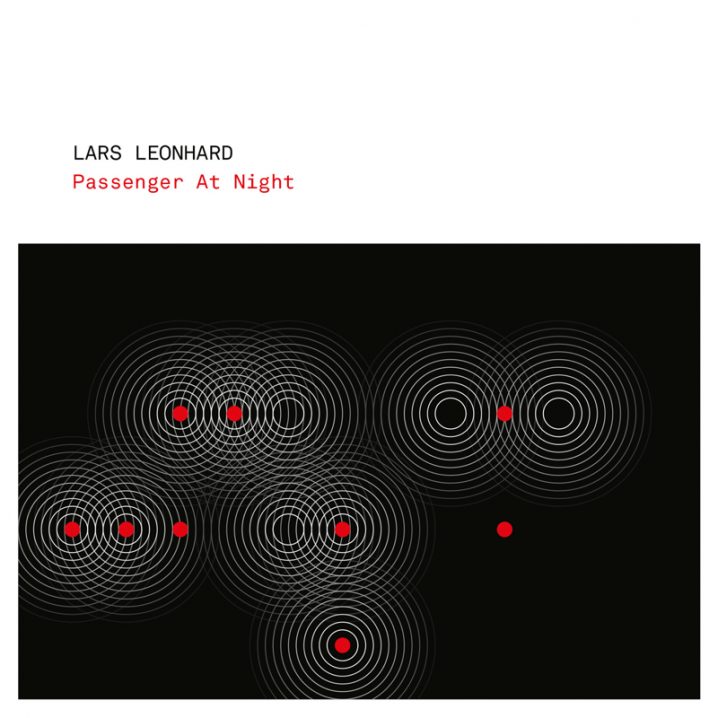 Lars Leonhard Passenger At Night BineMusic Lars Leonhard has had a fairly steady output over the last few years, amassing a substantial repertoire. Passenger at Night, his latest for the BineMusic label, is my favorite I’ve heard so far. It’s a long one, clocking in at 80 minutes. Of course, in the digital age, artists are free to work in longer formats, no longer constrained by physical media limitations, but I’m usually happy to hear something fairly concise rather than utterly sprawling. Passenger at Night rests comfortably in the middle, with eleven tracks plus a remix by labelmate Martin Nonstatic. Over the span of its many pieces, Leonhard splashes generously in the moist center of that intersection of dub and techno explored so perfectly by influential acts like Rhythm & Sound. Considering its title, it makes sense that Passenger at Night radiates moonlight with a distinctly late night intimacy. “Night Train to Berlin” sets things off in style, with a drowsy, hazy air about it and a subtly driving dub-tinged rhythm section. Leonhard varies the sedated throb of the proceedings, sometimes with a steady pulse of techno (“So Close So Far”, “Vienna”) and at others slowing down into something more downtempo (“Long Way Home,” “Heimweh”). And every so often, a track like “Lilly’s Spieluhr” has the faint twinkle of starlight while its melodic flourishes lend it a more human touch. It works well as a start to finish journey, perfectly conjuring up imagery suggested by its title; fans of dub-infused techno will likely enjoy Leonhard’s late night grooves as much as I do.
|
|
©
Words by Matthew Mercer of Ear Influxion

